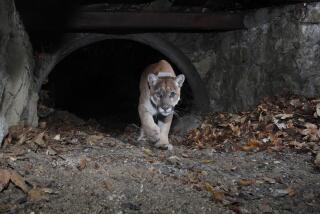So Many Keys but Too Few That Work
- Share via
Two grand pianos facing each other. Two intense-looking pianists flashing connective glances across the strings as they vigorously pound out disjunct rhythms and dissonant harmonies.
Just another night of classical intrigue at the Hollywood Bowl with the LeBeque sisters?
Not exactly. More like Herbie Hancock and Gonzalo Rubalcaba, performing on the American Airlines Jazz at the Bowl Wednesday, in a group of piano duo improvisations that were the heart of an unusually uneven program of jazz.
The contrast with Sunday night’s JVC Jazz Festival was dramatic. Where JVC was flat-out oriented toward commercially viable pop jazz, the American Airlines show--which also featured the Herbie Hancock Quartet and Chick Corea and Friends--made few concessions to easy accessibility for its audience of 9,817.
The Hancock-Rubalcaba duets were compelling displays of technical virtuosity. Rhythms, chord clusters and melodic phrases, driven by percussive attacks on the keys, sailed back and forth between the players, becoming more complex and more demanding with each exchange.
But the interaction on tunes such as Hancock’s “Maiden Voyage” and Wayne Shorter’s “Footprints” reached far beyond technique, into the realm of instant composition and recomposition. This was a performance that blurred the already uncertain borders between contemporary concert music and jazz, capturing elements from both forms and blending them into a dazzling demonstration of spontaneous creativity.
Unfortunately, it also was the briefest performance in the show. And it raised the question of why Rubalcaba was relegated to such a limited appearance. In a Bowl jazz concert last August, the Cuban pianist nearly stole the show from a lineup that included Joshua Redman and Wynton Marsalis. Surely that accomplishment alone should have justified a more extensive role for Rubalcaba Wednesday night.
But the brevity of Rubalcaba’s performance--as well as the even more egregious failure to present him as a soloist--was not surprising in a production that, despite the high visibility of its artists, lacked coherence and focus.
Corea’s program was subtitled “Remembering Bud Powell”--a project that has occupied the pianist’s interest for months. And with a group that included trumpeter Wallace Roney, alto saxophonist Kenny Garrett, bassist Christian McBride and veteran drummer Roy Haynes, the stage appeared to be set for a performance bristling with Powell’s pioneering bebop lines.
But that’s not quite the way it turned out. Corea is not an artist who is content to do impersonations of other musicians, and his take on a collection of Powell pieces was distinctly Corea-like, and not especially boppish.
Sometimes they worked, sometimes they didn’t. He made a courageous effort to reinterpret “Glass Enclosure,” one of Powell’s most mysterious compositions, without managing to touch its essence. Two familiar Powell tunes, “Tempus Fugit” and “Un Poco Loco,” fared better, although neither Roney nor Garrett sounded at the top of their form. And Corea’s soloing, almost always fascinating, seemed more scattered and less cohesive than one anticipates from this usually provocative improviser.
There was no disputing the contributions of McBride and Haynes, however. Despite audio reproduction that muddied much of his lower notes, McBride, predictably, was superb, and Haynes’ brilliant, concluding solo was a definition of how to play drums without losing contact with the music.
Curiously, Hancock’s quartet presentation, workmanlike though it was, never came close to the sudden inspiration of his performance with Rubalcaba. Relying for the most part on material from his current album, with pop tunes such as Peter Gabriel’s “Mercy Street” and Stevie Wonder’s “You Got It Bad, Girl,” Hancock and his players produced improvisations that possessed little sense of musical destination. Hancock’s solos had a detached quality, drummer Gene Jackson was a bit busy, and the generally dependable saxophonist Craig Handy, continuing the low achievement pattern of the evening’s horn players, rambled through many of his choruses.
The saving grace in Hancock’s set was the work of bassist Dave Holland. His solo on his own piece, “Dream of the Elders,” was--like the Hancock-Rubalcaba duets--a moment of enlightenment in a concert program with a level of accomplishments that only rarely matched its high aspirations.
More to Read
The biggest entertainment stories
Get our big stories about Hollywood, film, television, music, arts, culture and more right in your inbox as soon as they publish.
You may occasionally receive promotional content from the Los Angeles Times.










